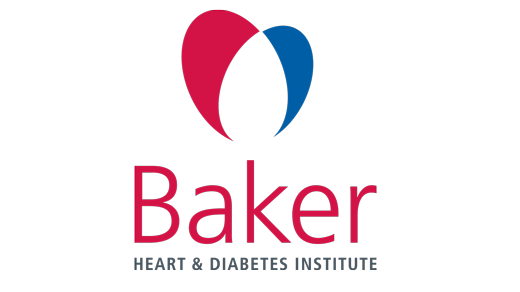
Smarter screening with lipidomics
Smarter screening with lipidomics
This innovative clinical tool could give a more precise heart risk score, improving early detection in the prevention of cardiovascular disease.
Problem
When ‘intermediate risk’ leads to deadly outcomes
Despite decades of progress in cardiovascular disease management, it remains the leading cause of death in Australia and a major contributor to health inequity. Alarmingly, more than 150,000 cardiovascular events are expected to occur over five years among individuals currently classified as having ‘intermediate’ risk – people who often go untreated or undertreated often due to a lack of diagnostic clarity.
Existing risk assessments are important tools, but they primarily focus on conventional factors like age, cholesterol, and blood pressure. These alone do not always capture the true biological risk, particularly in women, Aboriginal and/or Torres Strait Islander peoples, and those without obvious warning signs. As a result, many at-risk individuals miss the opportunity for timely intervention.
There is an urgent need to enhance cardiovascular risk prediction by integrating deeper biological insights. Without these tools, clinicians are often left uncertain about how best to manage people at intermediate risk, and too many remain unaware of their true risk until it’s too late to act.

Solution
From fats to facts
The metabolic CVD Risk (mCVDRisk) score is an innovative clinical tool that aims to deliver greater precision and personalisation in risk assessment to help transform the early detection and prevention of cardiovascular disease.
Cardiovascular risk arises from two main sources: our inherited (genetic) makeup and our environment, including diet, lifestyle, and other external exposures. The mCVDRisk score addresses both by combining advanced lipidomic profiling with polygenic risk scoring, offering a comprehensive view of an individual’s risk profile.Lipidomic profiling examines hundreds of fat-related molecules (called lipids) in your blood – rather than relying standard cholesterol testing. These lipids hold key information about how your body processes fats and energy, which can reveal early warning signs of disease. From a single drop of blood, our platform can measure more than 800 lipids, aiming to dramatically improve risk prediction compared to conventional methods.
Polygenic risk scoring adds another layer by analysing a person’s DNA to identify inherited risk. While traditional risk tools focus on outward signs, polygenic scoring uncovers genetic factors that may quietly elevate cardiovascular risk. Together, these two technologies can allow us to detect risk more precisely, especially in people who might otherwise be overlooked.
These technologies, when combined, can provide a more complete picture of individual risk – especially for those who fall into the grey zone of ‘intermediate’ risk using standard tools. mCVDRisk has been shown to reclassify a substantial proportion of these individuals into more appropriate risk categories, allowing for earlier, more targeted treatment.
Designed to integrate into existing clinical workflows and adaptable for use in remote communities, mCVDRisk helps support equitable access to preventive care. It represents a major step forward in precision cardiovascular medicine, offering a potential scalable and cost-effective way to reduce the burden of heart disease and help save lives.
Impact
Reclassifying risk. Rewriting outcomes
The mCVDRisk score could reclassify more than 50% of people who go on to experience a cardiovascular event from ‘intermediate’ to ‘high risk’. The mCVDRisk enables timely, targeted treatment that could prevent up to 75,000 heart attacks and strokes in Australia over the next five years.
This platform not only aims to improve individual outcomes – it also supports a smarter, more efficient healthcare system. Its ability to operate within existing clinical pathways and adapt to remote collection methods helps ensure equitable access, particularly for Aboriginal and/or Torres Strait Islander peoples and underserved populations.
With strong validation in over 16,000 individuals and robust health economic modelling, mCVDRisk is expected to be cost-effective for primary prevention and suitable for reimbursement under the Medicare Benefits Schedule (MBS). It lays the foundation for broader personalised care, with the potential to expand into other conditions like type 2 diabetes and Alzheimer’s disease and other cardiometabolic outcomes – marking a critical shift toward data-driven, precision prevention across Australia’s healthcare system.

If we are to reduce the number of cardiovascular events, it is imperative that we improve identification of individuals often missed by current assessment tools.
Professor Peter Meikle
Project Lead
Phillip's story: predicting heart risk with precision

Lifelong athlete Phillip ran marathons and climbed mountains. But his heart disease was hiding in plain sight.
He had no idea he was living with severely blocked arteries — until a heart attack in 2020 changed everything.
Now he’s backing the Heart Foundation’s mCVDRisk Score.
“This kind of test could have changed everything for me.”
Find out how a personalised blood test that could predict heart risk earlier could change things for people like Phillip.
Meet the team



Disclaimer
The information provided on this page is for general informational purposes about our Catalyst Partner’s project only - see the Disclaimer. If you have any questions or would like more information about this project or Catalyst Partnership Grants, get in touch.
You might also be interested in...

Medical tests for heart disease
Discover the types of heart tests used to detect heart disease, heart blockages, or heart attacks, from routine heart tests to advanced tests for heart disease.

What is a Heart Health Check?
A Heart Health Check (MBS item number 699 and 177) is the patient-friendly term for a comprehensive CVD risk assessment and ongoing management plan for people who do not have CVD.

Blood tests for heart disease
A blood test takes a small sample of your blood which is then sent for testing in a laboratory.
.png?format=pjpg&auto=webp)














